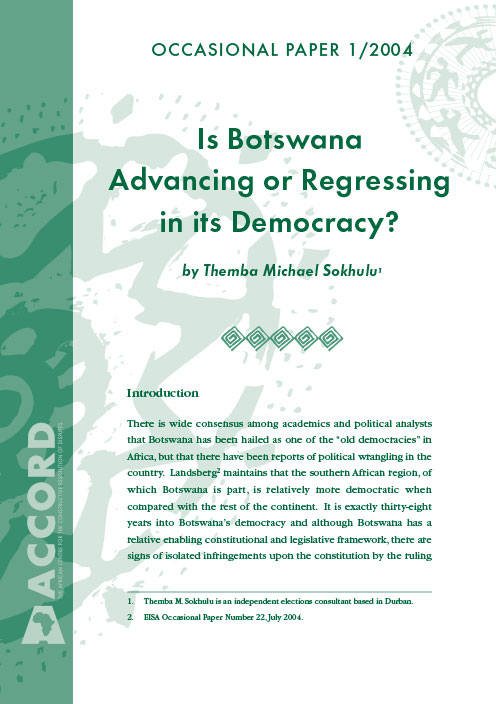
- Occasional Paper Series
Is Botswana Advancing or Regressing in its Democracy?
There is wide consensus among academics and political analysts that Botswana has been hailed as one of the “old democracies” in Africa, but that there have been reports of political wrangling in the country. Landsberg maintains that the southern African region, of which Botswana is part, is relatively more democratic when compared with the rest of the continent. It is exactly thirty-eight years into Botswana’s democracy and although Botswana has a relative enabling constitutional and legislative framework, there are signs of isolated infringements upon the constitution by the ruling party.
Just before the 2004 elections the Minister of Information and Broadcasting made a directive that state media must only cover the President, Festus Mogae and the Vice-President, Ian Khama. This directive came at a time when all political parties were campaigning and was not well received by electoral stakeholders. It was viewed as an abuse of state resources to the benefit of the ruling party (Sechele, 2004). A similar example of constitutional interference was the electoral administrative chaos in the run-up to the 1999 elections, which nearly threw the country into a serious constitutional crisis, when over 60 000 potential voters were nearly left out of the voters’ roll. The government reacted by declaring a state of emergency for the first time in the history of Botswana.
